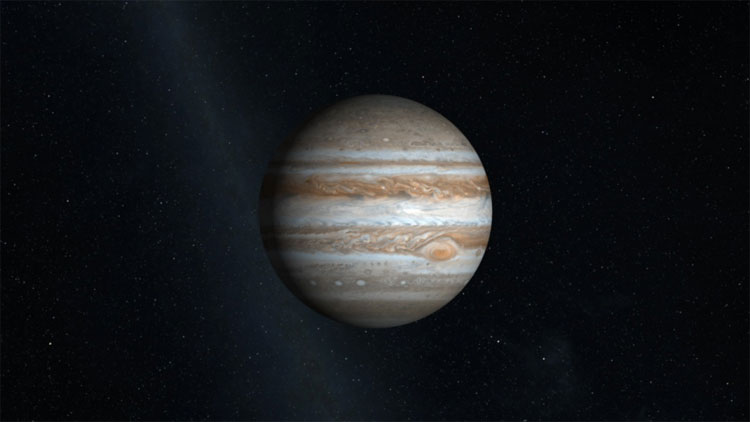What happens if Jupiter doesn't exist?
The Solar System is a rather strange star system. Over the past few decades, scientists have discovered more than 1,000 extrasolar planets moving around stars other than the Solar System.
These star systems are different from the Solar System. In most star systems, the planet is larger than the surrounding star, closer to the distance between Mercury and the Sun.
In 1995, the planet's alien detection world had about half the mass of Jupiter, but the distance from the star is only one-twentieth the distance between the Earth and the Sun. This exoplanet is also known as "hot Jupiter" . They are quite common in other star systems but not in the Solar System.
So why are the largest planets far from the Sun?

In addition to contributing to the creation of the Earth, Jupiter also helps protect the green planet.
Scientists make some assumptions for this. One of them is wandering "Jupiter" hypothesis.
Accordingly, when the system is very young, it is possible that the Solar System is surrounded by many terrestrial planets. After that, Jupiter moved inside. Its gravity changes the orbits of these planets, causing them to bump into each other and break into pieces.
Some pieces move near the Sun. However, when Jupiter retreated due to Saturn's formation, the remaining fragments gradually formed today's rocky planets: Mercury, Venus, Earth and Mars.
This also explains why the inner planets are younger than the outer planets.
If this hypothesis is correct, life on Earth will not exist without Jupiter. In fact, it is not impossible for life to appear, but the Earth may not form if Jupiter does not destroy the previous existence.
In addition to contributing to the creation of the Earth, Jupiter also helps protect the green planet. In the past 10 years, at least 5 comets or asteroids have crashed into Jupiter. Images recorded on March 17, 2016 show that Jupiter collides with a small object. These are only cases observed by the scientific world.
Some scientists think that there can happen 1-5 collisions every month. If it weren't for Jupiter's large gravitational force that deflected the object from Earth, humans would have suffered many collisions.
However, some comments suggest that Jupiter drags down the Earth.
- Overview of Jupiter
- For the first time, humans can discover Jupiter's deepest mystery
- The Juno probe sends the first image of Jupiter to Earth
- Life can exist on Jupiter satellites
- Tonight is the best time to see Jupiter
- Jupiter and Saturn will shine beautifully in the sky from today
- Jupiter once swallowed 10 times the planet Earth
- A series of wonderful images of Jupiter are sent from the Juno-NASA ship
- Photographs of Jupiter's surface look exactly like a water-picture
- The amazing thing that NASA's Juno spacecraft has just made
- Discover 10 more microscopic satellites orbiting Jupiter
- Finding 2 more moons around Jupiter
 Van Allen's belt and evidence that the Apollo 11 mission to the Moon was myth
Van Allen's belt and evidence that the Apollo 11 mission to the Moon was myth The levels of civilization in the universe (Kardashev scale)
The levels of civilization in the universe (Kardashev scale) Today Mars, the sun and the Earth are aligned
Today Mars, the sun and the Earth are aligned The Amazon owner announced a secret plan to build a space base for thousands of people
The Amazon owner announced a secret plan to build a space base for thousands of people